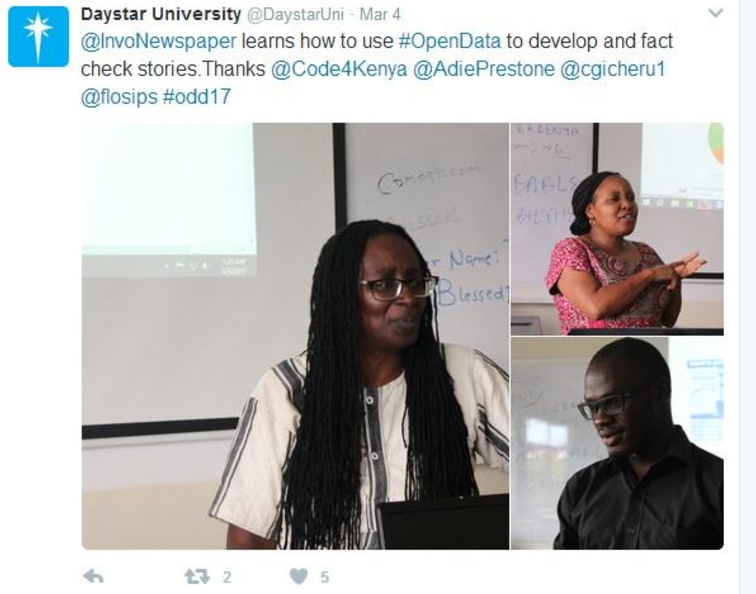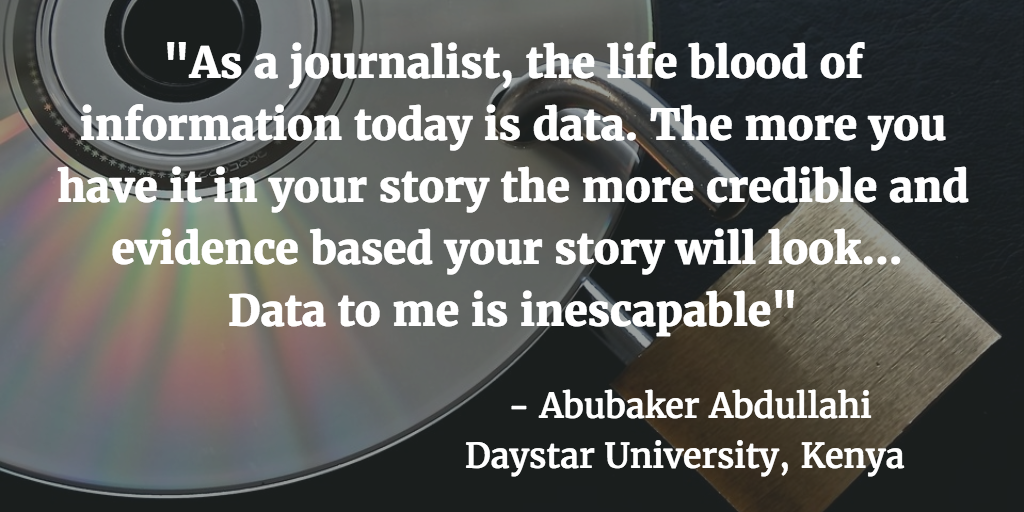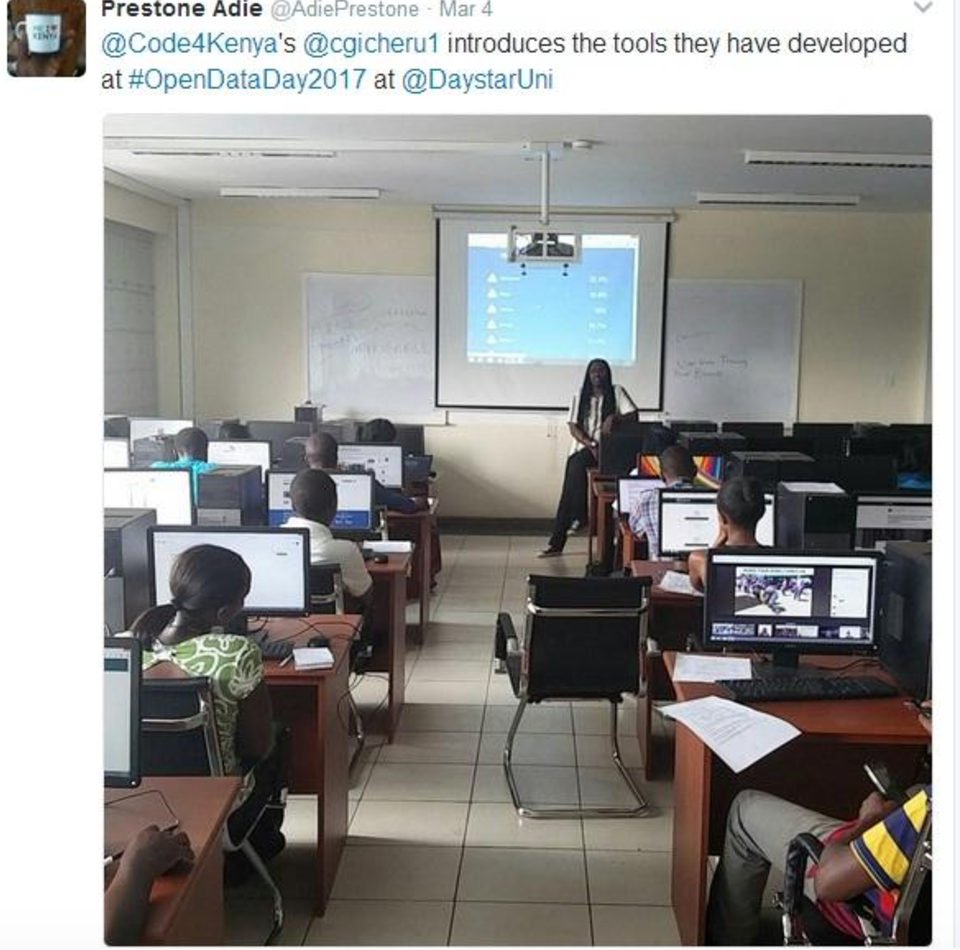This blog is part of the event report series on International Open Data Day 2017. On Saturday 4 March, groups from around the world organised over 300 events to celebrate, promote and spread the use of open data. 44 events received additional support through the Open Knowledge International mini-grants scheme, funded by SPARC, the Open Contracting Program of Hivos, Article 19, Hewlett Foundation and the UK Foreign & Commonwealth Office. This event was supported through the mini-grants scheme under the Open Contracting and tracking public money flows theme.
Before March 4, 2017, I had grand plans for the Open Data Day event. The idea was to bring together journalists from our student paper Involvement, introduce them to the concept of open data, then have them look at data surrounding the use of public monies. From there, we’d see what stories could emerge.
Then Stephen Abbott Pugh from Open Knowledge International linked me up with Catherine Gicheru, the lead for Code for Kenya, which is affiliated with the open data and civic technology organisation Code for Africa. The event took a wonderfully new turn.

Prestone Adie, data analyst at ICT Authority, started us off with an explanation of open data and gave us interesting links to sites such as Kenya National Bureau of Statistics, Kenya Open Data Portal, and Kenya’s Ethics and Anti-Corruption Commission. He also pushed it up by taking us to some interesting blogs. There was one from a data analyst who uses his knowledge and expertise to post about mall tickets and fashion vloggers among other varied topics. There was also another that crowdsources information about bad roads in Kenya.
It was a prime teachable moment, and I jumped in to emphasise how good writing is not restricted to journalism students. Data scientists and self-confessed nerds are in on the game too, and doing some pretty provocative storytelling in the process.

We took a refreshments break where Catherine and Florence Sipalla, surprised us with delicious branded muffins, giving all participants a sugar rush that sustained us for the second session.
Catherine and Florence, who works as communication consultant and trainer, walked us through what Code for Kenya is doing, using massive amounts of data to tell stories that keep our public officials accountable. Among the tools, they’ve developed is PesaCheck, which enables citizens to verify the numbers that our leaders provide.

We then planned to have our students meet to come up with story ideas using these tools. I’m looking forward to what they will produce.
Here is what one of them said about the event:
As a journalist, the life blood of information today is data. The more you have it in your story the more credible and evidence based your story will look. Such a conference will inspire young journalists to rethink of how they write their stories. Data to me is inescapable -Abubaker Abdullahi.
Prestone Adie’s list of Open Data sources
- Health facilities datasets
- Water And sanitation datasets
- Humanitarian datasets
- Africa open datasets
- Kenya Tender awards
- Data on parliament activities
- Laws made by the Kenyan parliament
- kilimo.go.ke / nafis.og.ke / FAO.org for agricultural datasets
- Commission on Revenue Allocation datasets
- Environmental data
- Historical photos








